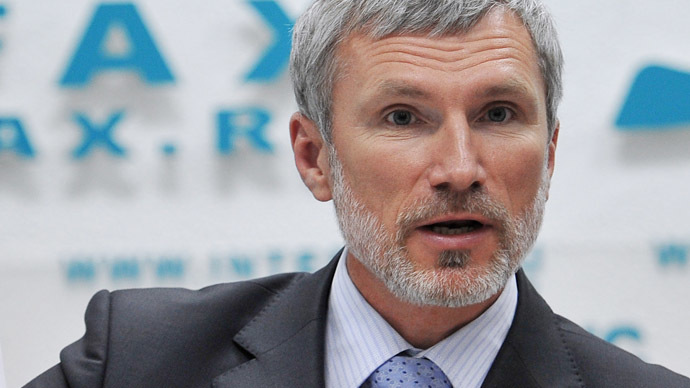Nationalist lawmaker moots visa ban for foreigners attacking Russia on web & MSM

One of Russia’s lawmakers thinks authorities should constantly monitor mass media and the internet, and issue visa bans on foreigners who verbally attack Russia and then seek work in the country they denounce.
MP Aleksey Zhuravlev, who heads the nationalist party Rodina (Motherland), but occupies his Lower House seat on a ruling party United Russia's ticket, has prepared a set of amendments that broaden the list of reasons for refusing a foreigner entry to the Russian Federation. If the bill is passed the government and the state watchdog Roskomnadzor would be tasked with constant monitoring of mass media, websites and social networks, to compile a list of “unreliable” foreigners who vent negative statements about Russia or Russian officials. Such people could then be refused an entry permit, but only if they want to come to Russia for work.
Zhuravlev said in an interview with the Izvestia daily that the idea of the motion had come to him after several media scandals, in which “some citizens of neighboring countries” slandered Russia in public statements, and then started looking for and finding work in Russia. Zhuravlev noted his suggestion concerned primarily, but not exclusively, Ukrainian citizens.
Currently a foreign citizen can be banned from entering Russia at the request of several state organs, including the Interior Ministry, Defense Ministry and Federal Security Service.
The reasons for refusal are usually not disclosed, but official instructions bar entry to those who have earlier violated visa and border regulations. They also exclude convicted criminals and people who refuse to pay fines levied by Russian law enforcers and the like.
The Roskomnadzor agency has stated it isn’t prepared to comment on Zhuravlev’s initiative yet. But one of the members of the Russian Public Chamber, political scientist Sergey Markov, said that in his view it was very reasonable and useful.“It is dangerous when people without any principles work in television, as such people could at any time support a coup d’etat, or any other crimes similar to those currently committed by the Kiev junta,” Markov said.
READ MORE: Russia slaps personal sanctions on 200+ foreign citizens – report
In mid-2014, Russia announced it was introducing personal sanctions against a number of Western officials known for their anti-Russian positions and actions. The move, which included an entry ban and an asset freeze, was a reply to similar sanctions introduced by the United States and the European Union, who targeted top Russian officials and heads of major state companies. They accused them of being “key ideologists and architects” of the policy towards Ukraine. As the Ukrainian crisis deteriorated, both sides have been adding more names to their blacklists.
The names on Russia’s lists have never been made public, but according to media leaks they allegedly included deputy National Security Advisor Caroline Atkinson, presidential advisers Daniel Pfeiffer and Benjamin Rhodes, Senate Democratic Leader Harry Reid, House of Representatives Speaker John Boehner, Chairman of the Senate Committee on Foreign Relations Robert Menendes and Senators John McCain, Daniel Coats and Mary Landrieu.












